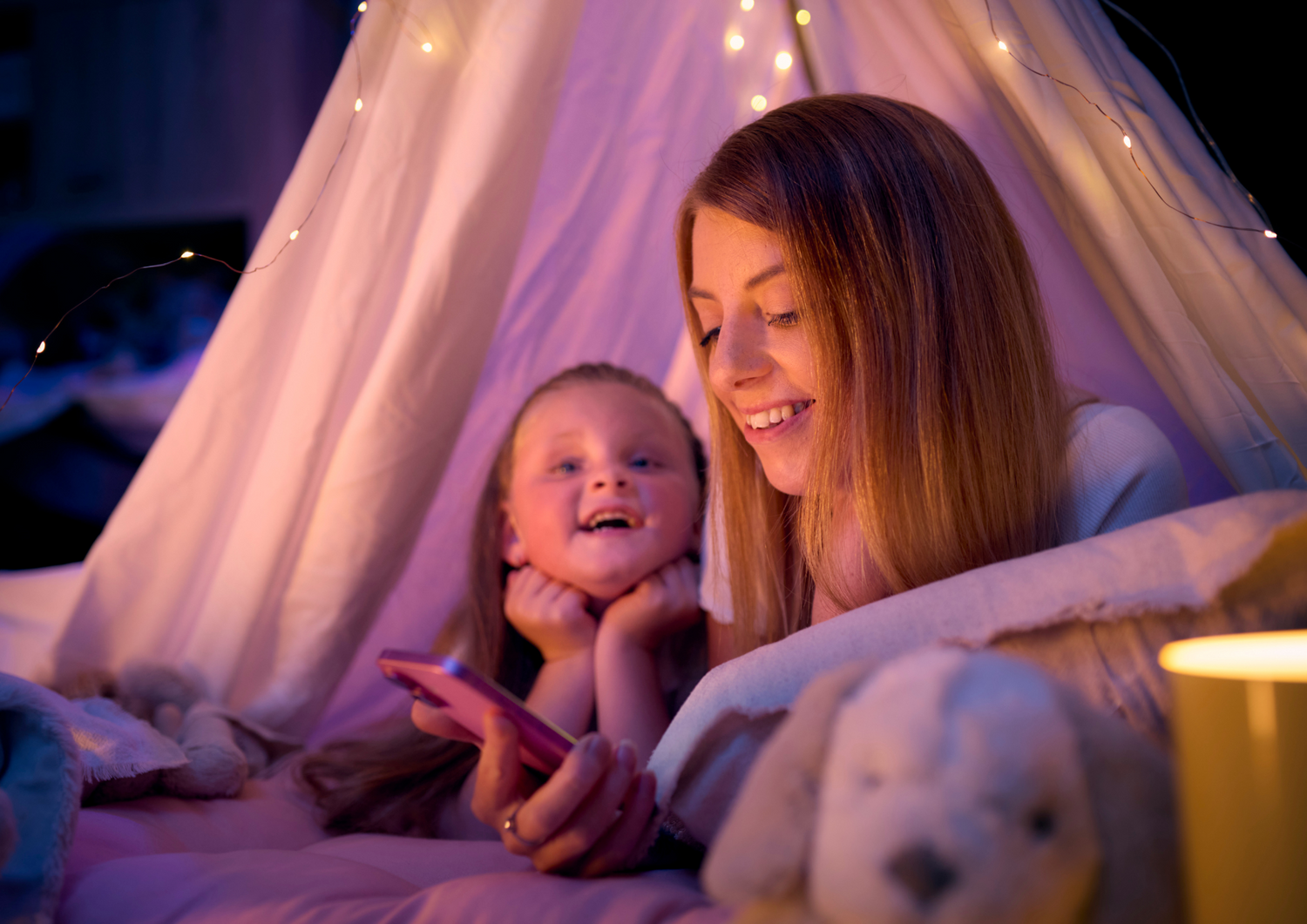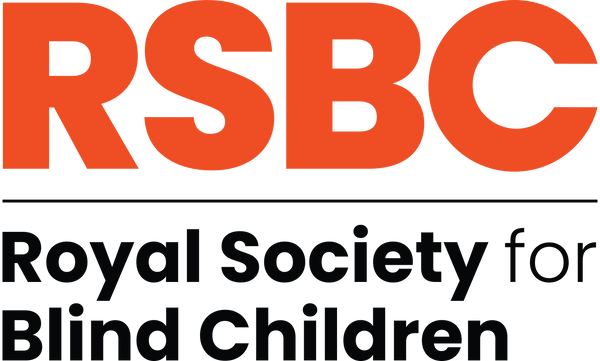
Our autumn newsletter
This autumn, we’re going fully digital! Discover inspiring stories from recent months and explore the issues that matter most to blind and partially sighted young people: transport, education, employment, and mental health.
Autumn updates from RSBC
Alejandro's story
Alejandro is a remarkable 19-year-old man with vision impairment who, with support from the RSBC team, will begin a Japanese Studies degree at Birkbeck, University of London, this October, with one of the mediums of his study being Japanese braille.
We spoke to Alejandro and his RSBC Futures Tutor, Mark, to learn more about his fascinating journey, paved by his own intelligence, determination and resilience, and aided by the great work you support at the Royal Society for Blind Children.
You might be thinking… why choose Japanese? Well, Alejandro has always had an interest in languages, growing up in a bilingual household himself. His interest in Japanese began when he started to watch anime (Japanese cartoons) as a pre-teenager, which led to him becoming a fluent autodidactic Japanese speaker. Since then, he’s had conversational Japanese lessons and is now taking on the impressive feat of learning Japanese braille.
Alejandro has been part of RSBC’s community for many years, firstly through working on technology accessibility with Alex, our Senior Accessibility Advisor. Alejandro said: “Alex has helped me build my technology skills, from touch typing and braille shortcuts to exploring new tools like AI glasses. This became especially important when my school couldn’t provide the tech help I needed. Since Alex is also vision impaired, I feel he understands things on a different level.”
A little over a year ago, our Futures team became part of Alejandro’s story too, helping him make the jump to university studies. Mark recalls being “totally amazed” by Alejandro’s passion for and proficiency in Japanese language and culture. The futures team initially supported him in selecting the right course and university, both for his studies and in also thinking about accessibility and the social aspects of student life.
University application processes are daunting for all young people. But, with the addition of DSA (Disabled Student’s Allowance) and the other adjustments a vision impaired student requires, it’s vital that they understand the process and feel confident and empowered to negotiate it and advocate for themselves. Our Futures team, and Mark in particular, were very instrumental in this process for Alejandro and his family and advised on adjustments to make Alejandro’s transition as smooth as possible, even arranging for him to speak with an education professional who’d worked in Japan. Alejandro described Mark as “patient and encouraging, always giving good ideas, but also always asking me for my own’.
It’s so important to RSBC that the futures of our young people are led by their own ambitions. That’s why, last summer, Mark also supported the collaborative effort that helped Alejandro to secure work experience prior to his studies at The Japan House London (JHL) in central London. Alejandro absolutely flourished in this placement, working as part of the Visitor Engagement Team. This enabled him to interact with Japanese speakers and build valuable workplace skills to complement the continuation of his studies this autumn. Alejandro’s personality and contributions left such a profound impression that he was invited back to present to the Director of Programming at JHL to share insight around how to make their exhibits more inclusive and accessible.
Stories like Alejandro’s embody our motto of a life without limits. Driven by his passion, we’ve supported him to not only follow his own ambitions, but to have a sincere impact on the world around him, creating the potential to change and inspire the lives of other blind and partially sighted young people and encourage them to follow their dreams.
Alejandro’s looking forward to making new friends who share his interests at university, as well as enjoying some new-found independence in a new environment and continuing to chase his dream of one day living and working in Japan.
The RSBC team is hugely proud of Alejandro’s many achievements and we look forward to supporting his successes through university and beyond.
Zenny's work update
You may remember hearing from Zenny last year, introducing the autumn newsletter as our previous Youth Voice Chair. Today, she is working full time as a Communications Assistant, a role she loves. But getting there wasn’t easy.
Zenny told us “The biggest challenges come when software isn’t fully accessible with screen readers, and navigating support through Access to Work can also be exhausting at times. These are things people might not always think about, but they’re a big part of the workplace experience when you’re vision impaired.”
RSBC has been part of Zenny's journey for years, from building confidence as Chair of our Youth Forum, to tailored employment support, CV advice to interview prep, our team made sure she wasn't preparing alone.
We want to continue to help blind young people feel fearless, capable, and supported transitioning into the workplace.
Celebrating Raffy's GCSE Success!
This past summer, we asked you to support blind and partially sighted young people like Raffy - and you responded!
Raffy missed almost half a year of school due to his condition, making exams feel overwhelming for him and his family.
Many blind children do not have the support they need in school, but thanks to your generosity, Raffy not only caught up but also achieved the GCSE results he needs to pursue his dream career in forensic science.
Our RSBC stickers are here!
This Autumn, we’re excited to share something special with our supporters: RSBC stickers.
Sign up to give a regular gift today and will send you a pack of RSBC stickers for free as a thank you for your incredible generosity and support.
Available in six unique designs, you can proudly stick them wherever you like - on your phone, laptop, water bottle, or journal - celebrating and affirming the amazing community of vision impaired young people we’re proud to represent.
Get them here: Stickers – Royal Society for Blind Children
The launch of Bedtime Donations
Last week, we launched our new app- Bedtime Donations, and your support blew us away! Bedtime donations is an app to make audiobooks accessible to Blind Children everywhere.
The wonderful Maya, aged 6, and her mother Sian spoke on BBC Breakfast with RSBC's Lily-Rose about the app and the need for more audiobooks for vision impaired children.
Sian said "Children's books are readily available... but there aren't as many [audiobooks] out there for children... and they are expensive."
So many Blind Children like Maya, have vivid imaginations and need stories to develop, dream, and connect with the world around them.
RSBC want to ensure vision impaired young people are not being priced out of a crucial part of their development.
Download the app here: RSBC Bedtime Donations
Meet Elodie
At just four months old, Elodie was diagnosed with Leber’s Congenital Amaurosis, a rare condition causing severe sight loss. The diagnosis left her family feeling lost and unsure of the future.
Proud parents, Tim and Jessica say "We felt completely lost... we had no experience with blindness... but even the first call [from RSBC] was filled with support and warmth, knowing that Claire was there for us and knew how to help us."
With this help, Belle has grown into a caring, confident big sister, while Elodie is thriving at nursery, learning independence, making friends, and enjoying play.
You can read their full story here: Elodie and Belle’s Story – Royal Society for Blind Children
Rosie's transport report
Rosie is a habilitation specialist, meaning she is RSBC’s resident expert in supporting our young people in building up their independence through skill teaching. This includes mobility, route learning, and life skill lessons.
Rosie helps support young people to access the world around them through helping them to grow their independence and confidence with regards to transport. Some examples of ways Rosie does this is by helping them to learn routes, manage challenges on their routes, use supportive technology, supporting them in advocating for their needs and adjustments, and teaching them how to manage challenges and problem solve when things go wrong.
Rosie says ‘half the battle isn’t about teaching them how to do everything according to plan, but what to do when a plan goes awry. What to do if they miss their stop on a bus? If they get lost? It is equipping them with the skills to know that when challenges arise that they carry a toolkit to solve these problems. These are the fears and challenges a lot of blind young people carry with them about transport. A lot of what we do is going through these ‘what ifs’ and working with them, challenging them, so they know what to do.’
“The most rewarding part is seeing the shift when they realise, ‘I can do this on my own.’ Once they’ve had that breakthrough, their confidence grows, and suddenly the world feels so much more open to them.”
A good example of Rosie’s work is a recent piece of work she has been doing with a young person transitioning into university. Alongside all the usual fears and worries this adjustment entails; Rosie was there to support this young person learn their commute, consider and combat some of the challenges that would come up and help to make sure they feel as supported as possible to move around a new environment as independently as possible- and signpost scenarios to the university in which this young person would require support to do so.
Tailored, responsive help by Habilitation Specialists like Rosie ensures that young people can adapt and thrive, can leave their home and socialise, can move independently to and from work and school. This work is invaluable in recognising our young people’s independence and ambition and ensuring they feel supported when engaging with the public and able to advocate for themselves when a scenario needs to be adapted for them.
Stay connected
We’d love to keep you up to date with how we’re supporting children, young people and families, and how you can get involved.
Sign up for our newsletter below.

